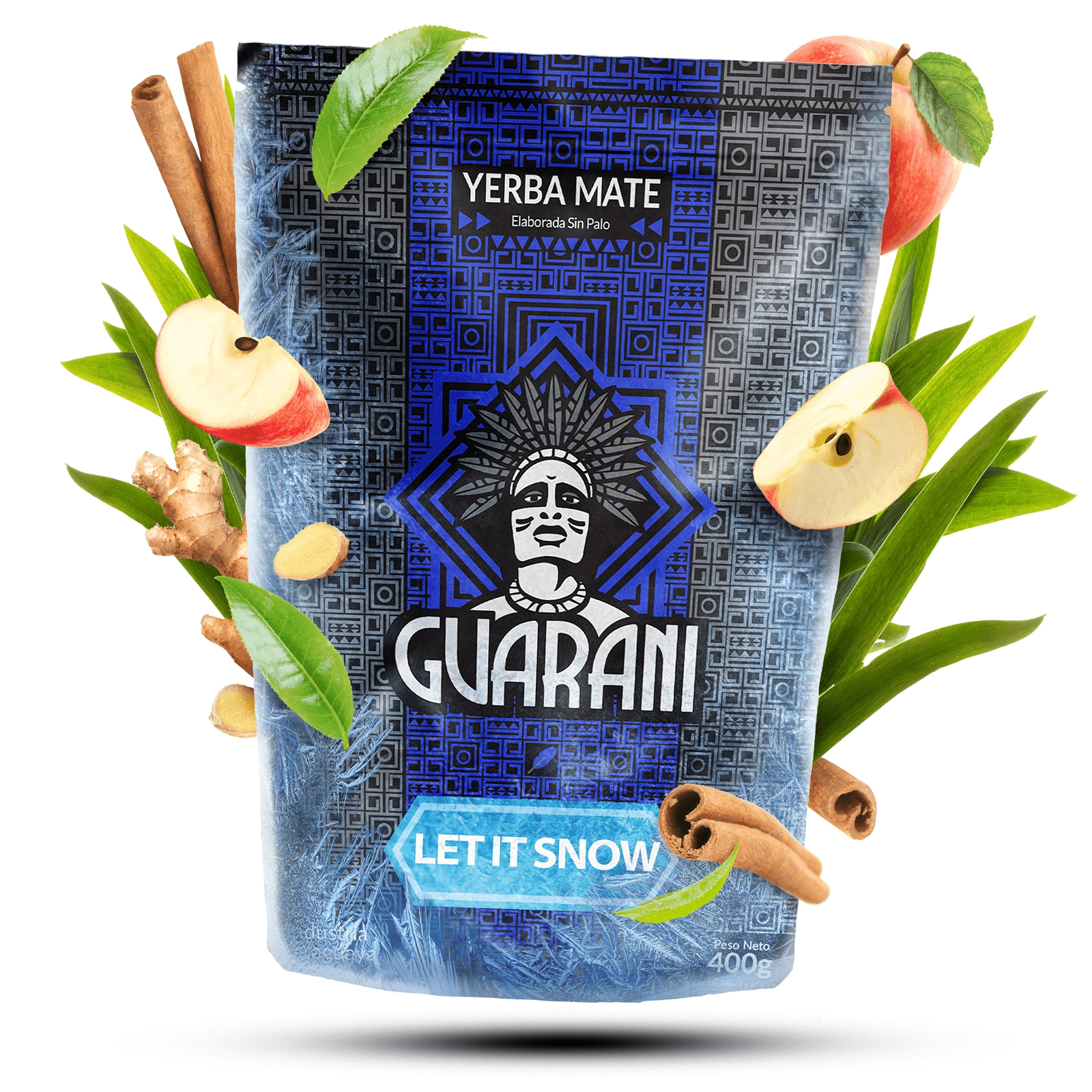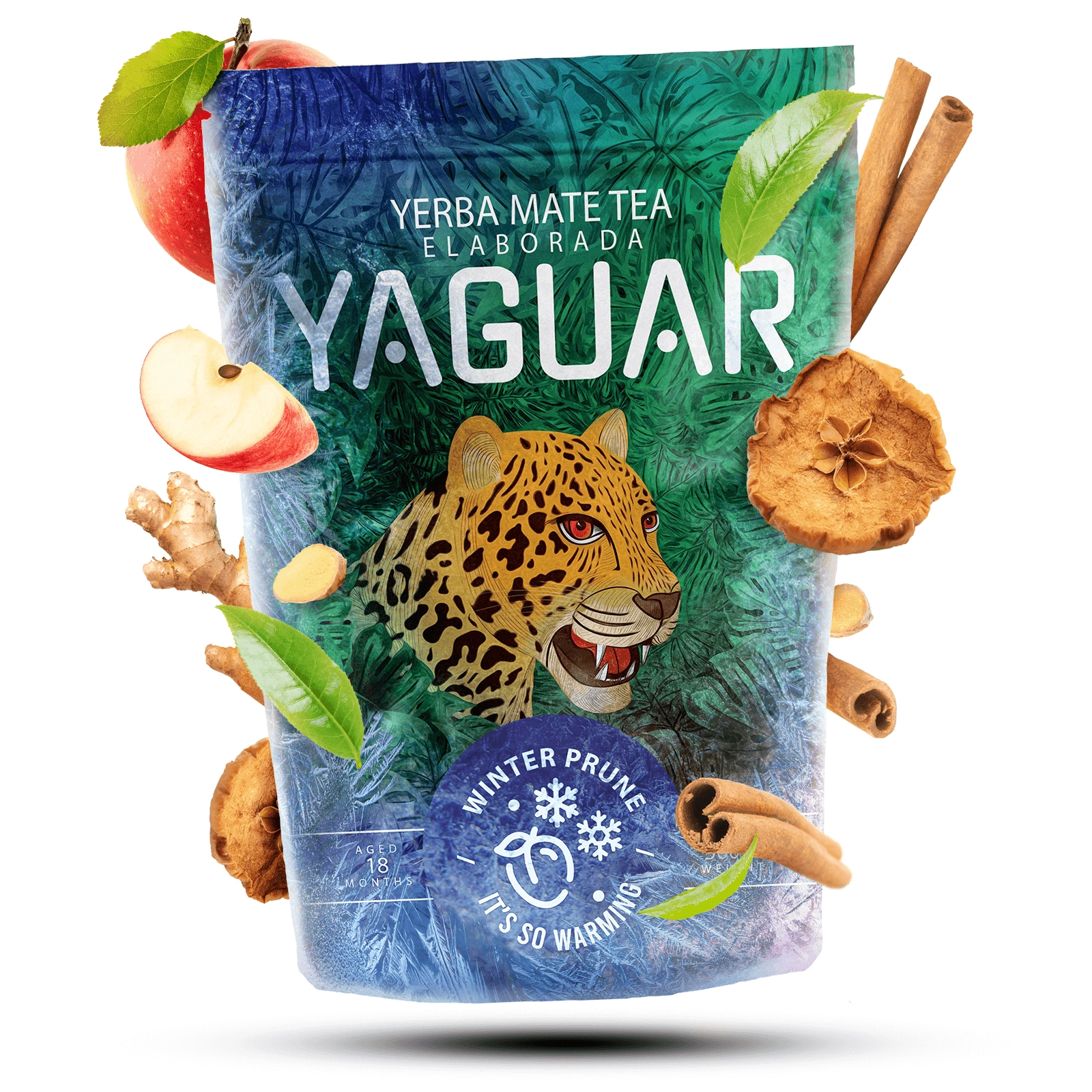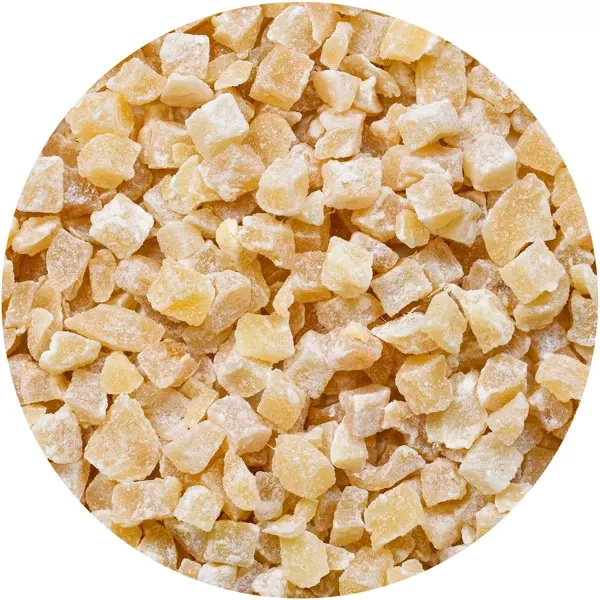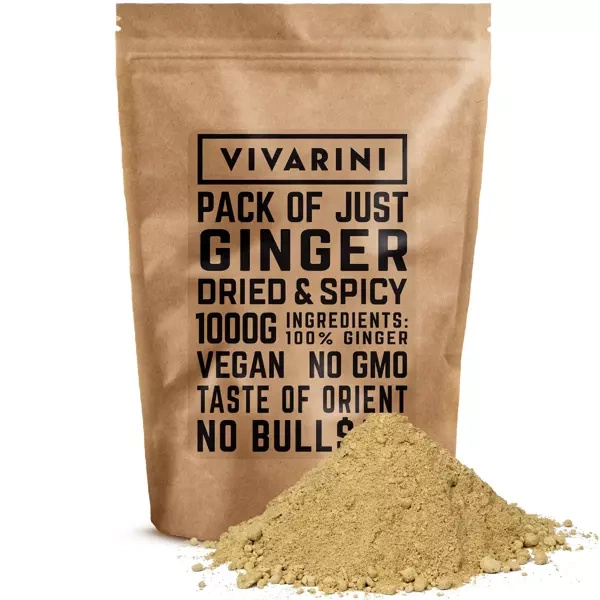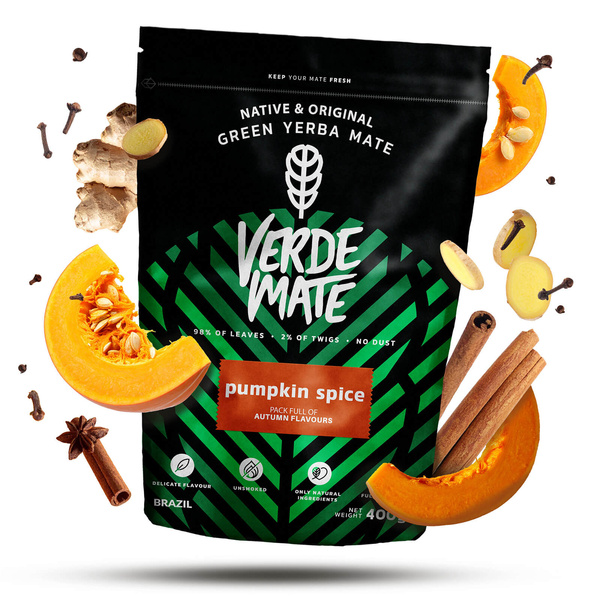Ginger properties – the natural power for health and flavour
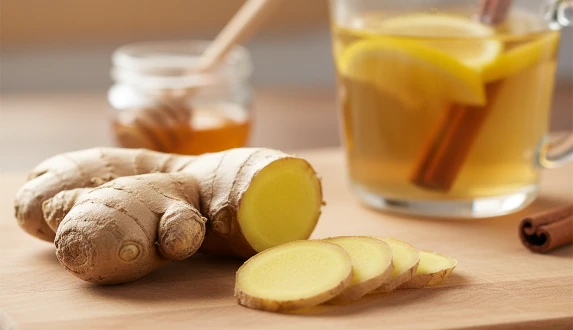
Ginger is one of those plants that has inspired both chefs and lovers of natural well‑being for centuries. Aromatic, slightly spicy and full of warmth, this root works not only as a spice but also as an ingredient in countless drinks – including the much‑loved ginger tea and energising yerba mate with ginger. In today’s article you’ll get to know this remarkable plant better: discover where ginger comes from, what properties ginger has, how to use ginger every day and in which form to benefit most from its natural goodness.
If you wonder what properties does ginger have, what is ginger good for and whether it is worth drinking it every day – you’ll find complete, practical answers here today. Enjoy the read!
Summary:
- Ginger – what is this plant?
- Ginger health properties and its effects
- How to use ginger?
- Yerba mate with ginger – an energising duo
Ginger – what kind of plant is it?
Common ginger (Zingiber officinale) is a plant that plays a huge role in the cuisine and natural medicine of many cultures around the world. Although for most of us it’s simply an aromatic, spicy addition to tea or dishes, in fact ginger is a treasure trove of bioactive compounds with powerful health‑supporting effects. No wonder that for thousands of years it has been called the “root of life” – a plant capable of stimulating the body and warming the spirit.
Ginger – origin and characteristics of the plant
Ginger’s homeland is probably the southern regions of Asia – India, China and Malaysia – where it thrives in a warm, humid climate. Today its cultivation can be found almost world‑wide, from Africa to South America. The plant grows up to one metre in height and produces long, lance‑shaped leaves and delicate, decorative flowers. Yet its most precious part is hidden underground – the rhizome, an uneven, bulbous structure that contains essential oils, gingerol, shogaol and other substances responsible for distinguishing ginger medicinal properties.
💡 Did you know? In ancient China ginger symbolised strength and life energy. People believed that its sharp taste stimulated circulation and warmed the “inner fire”, helping to maintain balance within the body.
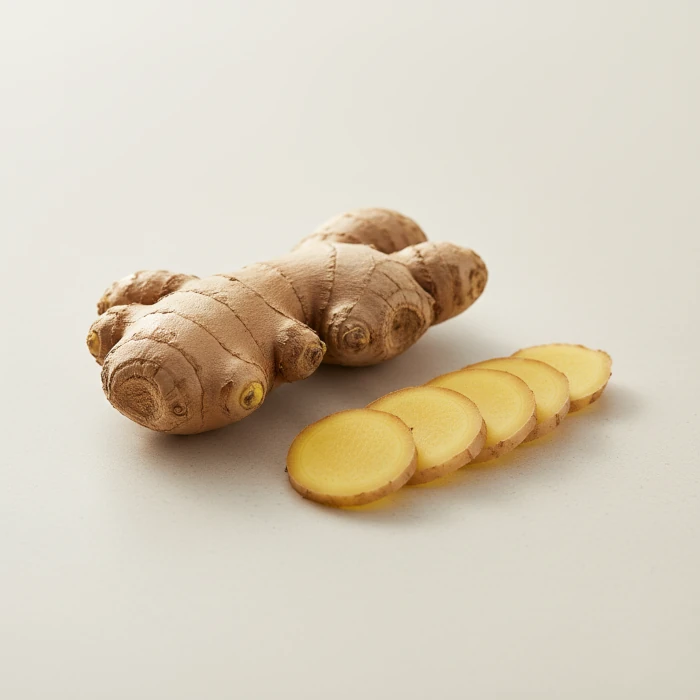
Although ginger is mostly associated with Asian cuisine, today it’s hard to imagine global gastronomy without its distinctive, slightly pungent flavour. It is the foundation of many soups, meat dishes, curries, infusions and desserts. Ginger also perfectly combines culinary value with care for well‑being – its regular consumption supports immunity, soothes nausea and is a classic remedy for colds.
Ginger – from root to spice
On shop shelves you’ll find different forms of this plant: fresh ginger, ground ginger and candied ginger. Each has its own distinct character and uses – both in cooking and for daily self‑care.
- ✔️ Fresh ginger – aromatic, juicy and slightly spicy.
- ✔️ Ground ginger (also called ginger powder) – intense in flavour, perfect for bakes and spice mixes.
- ✔️ Candied ginger – sweet and spicy, great as a snack or as an addition to desserts or ginger for tea.
This variety makes it easy to adapt ginger use to your needs – some prefer fresh root for infusions, others reach for ground ginger in baking, while some enjoy candied ginger as a naturally sweet, healthy treat.
Fresh ginger
Fresh ginger is the most natural form of the root. It has an intense aroma and a distinct taste combining spiciness with a refreshing citrus note. Added to food, it enhances depth and adds a touch of the Orient. It works beautifully as an ingredient of ginger tea, as a complement to yerba mate or fresh juice. If you’re wondering how to add ginger to tea, just slice a few pieces of fresh rhizome – ideally add them to hot (though not boiling) water to preserve all its valuable compounds.
Fresh ginger is also a great way to strengthen your immune system and aid digestion. A few slices in a warm drink are enough to feel its warming ginger effects – especially pleasant on cold days or when you feel run down.
Ground ginger
Ground ginger – that is, ginger powder – is the form most often used in the kitchen. Perfect for baking – gingerbread, spice biscuits or porridge. It is also excellent in marinades, sauces and Oriental dishes. Unlike the fresh version, its flavour is more concentrated and long‑lasting, so even a small amount gives intense aroma.
It’s worth remembering that ground ginger retains most of its ginger health properties, making it a fine ally during the autumn and winter months when we seek natural ways to warm up and support immunity.
Candied ginger
For those with a sweet tooth – and not only them! – Candied ginger is the perfect meeting of pleasure and well‑being. Its spicy‑sweet flavour makes a lovely snack between meals or a flavourful addition to ginger tea and desserts. Although the candying process reduces some active substances, the product still retains part of its nutrients and natural benefits – a tasty alternative to sweets with a touch of exotic spice and health.
📌 Summary:
- Ginger originates from South Asia and is one of the oldest known medicinal plants in the world.
- It is rich in active compounds that support digestion, circulation and immunity.
- Available in many forms – fresh, ground and candied – it lets you enjoy its distinctive taste and benefits all year round.
- It pairs perfectly with infusions – tea or yerba mate.
In the next part of the article we’ll look more closely at the ginger health properties and ginger effects, discovering what it’s good for and how best to use it – both in the kitchen and in everyday well‑being.
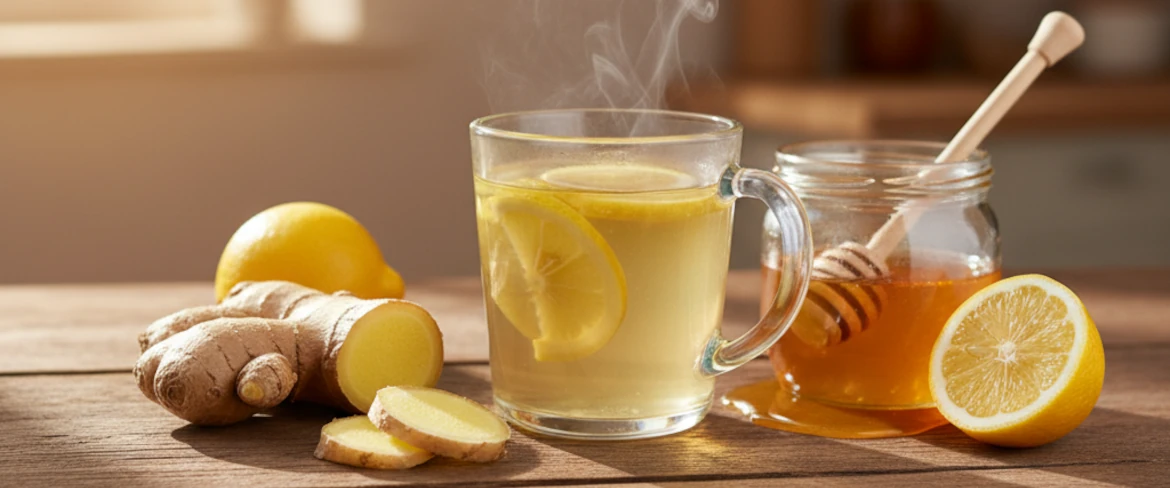
Ginger health properties and its effects
Ginger is not only a popular spice with a unique taste but also a plant with a long history of use in traditional medicine across cultures. Regular consumption of ginger – both fresh and in powder form – can naturally support the body’s everyday functions. Its ginger properties have been confirmed by numerous scientific studies as well as by centuries of practical knowledge of natural medicine. Among its greatest strengths are its anti‑inflammatory potential, digestive support and beneficial influence on immunity. At the same time, ginger remains a simple, tasty addition that can be integrated into daily routines – for example in a cup of warm ginger for tea. If you’re wondering is ginger healthy, just look at its composition – it’s a source of bioactive substances that help promote overall well‑being.
Ginger – medicinal and health properties
From a scientific perspective, the ginger effects are mainly due to its bioactive compounds such as gingerol, shogaol and zingerone. Research indicates that these substances demonstrate antioxidant and anti‑inflammatory activity, supporting the body’s natural defences. For this reason, ginger has been used for ages in traditional medicine as a natural way to maintain well‑being and vitality during colder months or periods of low immunity.
- ✔️ Aids digestion – ginger is often described as a spice that supports the digestive system by stimulating gastric juices and easing discomfort after meals.
- ✔️ Anti‑inflammatory properties – gingerols contained in the root may help reduce inflammatory processes in the body, as confirmed in many observational studies.
- ✔️ Improves circulation – regular ginger intake can support better blood flow, helping the body stay oxygenated and warm in cooler weather.
- ✔️ Boosts immunity – infusions with ginger combined with honey and lemon serve as a natural support for the body in periods of increased risk of colds or flu.
It’s worth noting that ginger can be a valuable part of a balanced diet throughout the year – not just in winter. In summer it tastes great in cold drinks and smoothies, while in winter you can enjoy it in warming soups or hot drinks. Regular, moderate use of ginger is an easy way to introduce a natural ingredient with broad applications into your daily meals.
💡 Good to know: Modern scientific research* confirms the wide‑ranging action of ginger. Clinical trials have observed its impact on digestive comfort, inflammatory responses and general well‑being.
* 💬 Sources:
- N. A. Popławska et al., Ginger (Zingiber officinale) – A Beneficial Effect on Health and Physical Activity, Quality in Sport, 2024.
- N. H. Anh et al., Ginger on Human Health: A Comprehensive Systematic Review of 109 Randomised Controlled Trials, Nutrients, 2020.
What is ginger good for?
This plant has a wide range of applications – both in the kitchen and in home remedies for better well‑being. Ginger for colds has been a well‑known traditional solution for years in many cultures – it warms the body, supports natural defence mechanisms and helps you recover sooner after fatigue or chill. Although ginger is not a medicine (it’s important to clarify), its natural benefits mean it has been used for centuries to ease minor ailments and low energy. Here are some common situations when you might want to reach for it:
- Colds and low immunity – a cup of warm ginger tea with lemon and honey is a traditional way to warm up from the inside out and relive a sense of comfort.
- Ginger for the throat – its mildly warming effect can soothe irritation; tea or a drink with honey and lemon brings natural relief.
- Nausea and travel discomfort – studies suggest that ginger effects include helping reduce feelings of nausea and motion sickness.
- Women’s comfort – moderate consumption of ginger is often noted in clinical literature as a natural support during the menstrual cycle to ease discomfort.
- After meals – a slice of fresh ginger or a pinch of ground ginger in warm tea may help the body digest heavier dishes more easily.
Including ginger in your daily diet is therefore a simple and tasty way to support balance and natural vitality. Experiment freely and discover which form you like best – fresh, ground or sweet‑and‑spicy candied ginger.
In the next section of the article we’ll show how to use ginger in practice – in infusions, tea and everyday meals – to make the most of its flavour and aroma. Keep reading!
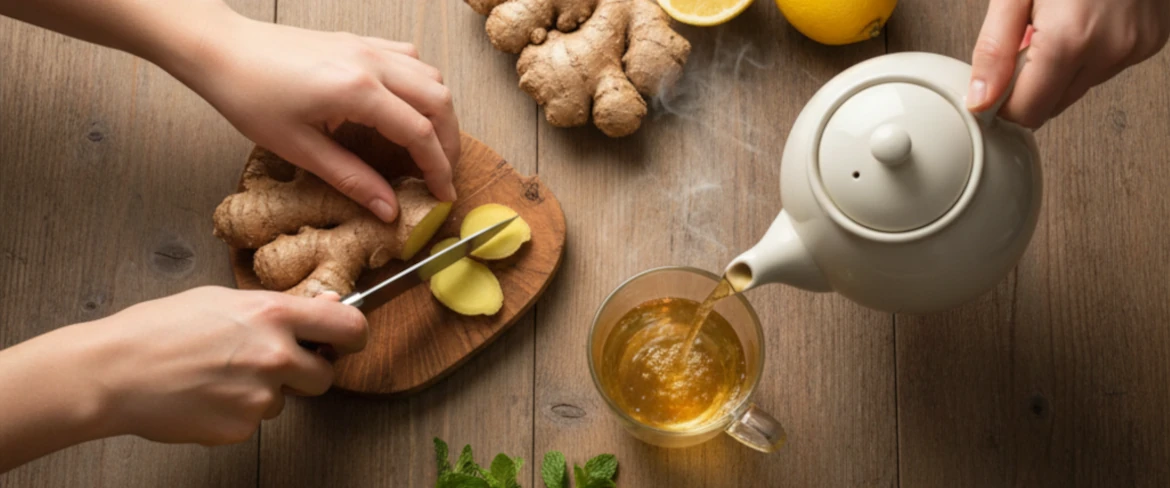
How to use ginger?
The ginger root is incredibly versatile – it works beautifully in the kitchen, in infusions and even in cosmetic applications. Its intense, slightly spicy flavour lifts any dish or drink and brings more than just aroma – it adds character and warmth. In this part we’ll show you how to use ginger every day – from making classic ginger tea to a warming immunity brew and to creative uses in the kitchen.
Adding ginger regularly to meals or drinks is a simple way to make your daily menu more aromatic, balanced and full of flavour. Let’s get started!
Ginger for tea – how to add ginger to tea?
Ginger tea is a classic, especially welcome on chilly days. It tastes pleasantly warming and refreshing at the same time. There are many recipes, but the key is knowing how to add ginger to tea and extract its full flavour and aroma.
☕ How to make ginger tea – step by step:
- Peel a piece of fresh ginger (about 2–3 cm of rhizome) and slice it thinly.
- Place the slices in a cup or teapot and pour over hot water (around 90 °C / 194 °F – not boiling).
- Let it steep for 5–10 minutes until the ginger releases its distinct aroma.
- Add a few drops of lemon juice and a teaspoon of honey – this classic combination perfectly complements the spicy taste of ginger.
This brew tastes best in winter but is also delightful chilled – with ice cubes and a slice of lemon, it makes a refreshing summer drink.
P.S. You can also combine ginger for tea with your favourite variety – black, green or herbal. Simply add a few fresh ginger slices to your hot brew, wait a few minutes and enjoy its pleasantly spicy note.
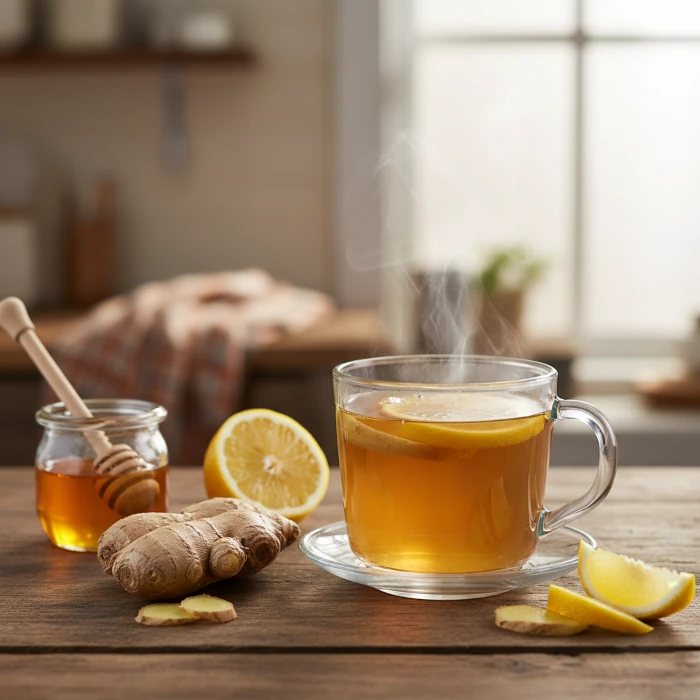
If you’re looking for ready‑made teas with ginger, have a look at our range in the “Tea” section. You’ll find unique options there – from classic blends to exotic flavour combinations:
- Mary Rose Ginger & Lemon – green gunpowder tea with candied ginger, lemon and lemongrass.
- Mary Rose Chai Tea – black Assam tea with ground ginger, cardamom and cinnamon.
- Mary Rose Autumn Vibes – black Yunnan tea with quince, rowanberry and candied ginger.
- Mary Rose Caramel Pear – velvety Yunnan black tea with pear, ginger and a hint of caramel.
- Mary Rose Rooibos Sunrise – rooibos with ground ginger, chamomile and orange peel.
How to make a ginger infusion for immunity
Nothing warms you up on a cold day like a ginger infusion. It’s a natural way to boost the body and lift the mood in autumn or winter. It takes only a moment to prepare and uses simple ingredients.
Recipe for a ginger infusion for immunity:
- 2–3 slices of fresh ginger
- a pinch of turmeric or a small piece of fresh turmeric root
- half a teaspoon of honey
- a little lemon juice
- 250 ml warm (but not boiling) water
Pour hot water over ginger and turmeric and let steep for about 10 minutes. Then add lemon juice and honey – but only after the drink has cooled slightly, to preserve the nutrients. This drink is best consumed in the morning or after coming back home on a cold evening. If you’re wondering whether you can drink ginger every day – in moderation, yes; gentle infusions are perfect for daily use.
🔍 Tip: Try adding a pinch of cinnamon or a few cloves – they will enhance the warming properties of ginger and give the drink a festive fragrance.
Other ways to use ginger
Ginger is a master of multitasking! It’s perfect for beverages but also for cooking and body care. Here are some inspirations for everyday use:
- ✔️ In cooking – add ginger to cream soups (like pumpkin or carrot), curries, sauces or stir‑fry dishes. In sweets it pairs deliciously with honey, citrus fruits and apples.
- ✔️ In baking – reach for ground ginger as a spice for gingerbread, cookies or cupcakes – it adds that unmistakable, warming character.
- ✔️ In cosmetics – mixed with coconut or citrus essential oil, it can make a stimulating home body scrub.
- ✔️ In aromatherapy – a few drops of ginger essential oil in a diffuser fill the room with a soothing yet energising aroma.
As you can see, ginger fits into almost anything – from main courses to desserts to DIY cosmetics. It’s a true household treasure!
How to store ginger to keep it fresh and full of properties?
The way you store ginger has a big impact on its aroma and shelf life. Here are a few helpful tips on how to store ginger in different forms:
- Fresh ginger should be kept in the refrigerator – wrapped in a paper towel and placed in a container or a perforated bag. This way it stays fresh for about two to three weeks. You can also freeze it in pieces or grated, ready to use at any time.
- Ground ginger or ginger powder should be stored in a tightly sealed jar, away from humidity and direct light – preferably in a cupboard.
- Candied ginger should be kept in a dry, cool place, in a jar or tin. This preserves its freshness and pleasant softness for many weeks.
Following these simple rules will keep your ginger ready to use – full of aroma and flavour whenever you need it.
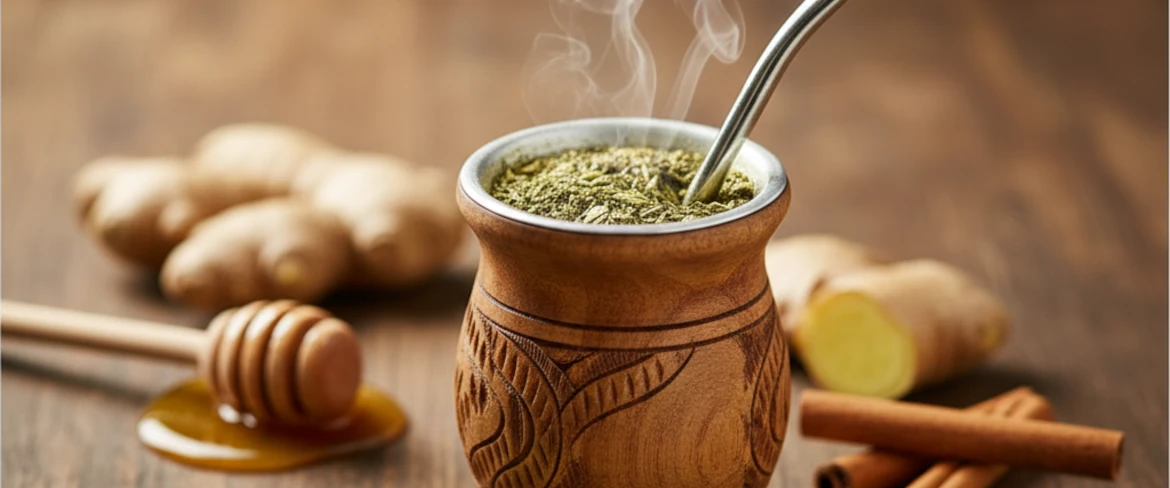
Yerba mate with ginger – an energising duo
The combination of intense yerba mate and the warming touch of ginger is a blend that delivers not only great taste but also synergy of action. Yerba mate is known for its natural stimulant effect – it improves focus, adds energy and enhances alertness. Ginger, on the other hand, brings pleasant spiciness and gentle warmth while enriching the flavour with an exotic, slightly citrusy note.
This duo has its devoted fans – especially in autumn and winter when we look for natural ways to boost the body and lift the spirit. No wonder that yerba mate with ginger enjoys such popularity among both beginners and experienced mate drinkers.
Why choose yerba mate with ginger?
Combining yerba mate and ginger means more than just pleasant taste – it offers a functional benefit too. Yerba mate, rich in caffeine, theobromine and polyphenols, provides natural, sustained energy and improves concentration without the sudden crash of coffee. Ginger, thanks to its aromatic and slightly pungent nature, perfectly complements this character, adding warmth and freshness to the brew.
❤️ Yerba mate and ginger – the perfect pair
- ☀️ Natural energy – yerba mate provides gentle, long‑lasting stimulation, while ginger warms the body and keeps you focused.
- 🧠 Better focus and mood – drinking yerba mate with ginger regularly is a splendid choice for students and those who work mentally intensively.
- 🌿 Boosts immunity – the infusion is rich in natural antioxidants, and ginger further supports the body during cold seasons.
- 🍯 Great taste and aroma – the joining of bitter‑green mate and spicy ginger creates a unique blend – especially when enhanced with cinnamon, lemon or honey.
If you enjoy natural drinks without artificial additives, yerba mate with ginger may become your favourite alternative to coffee. It energises the body, warms the soul and delights with its depth of flavour.
Recommended ginger products available at MateMundo.co.uk
At our store you can find a wide range of aromatic blends with ginger – perfect for chilly days, but also ideal for lazy afternoons when you need a natural boost.
Creamy combination of yerba mate, pear, ginger and spices. Perfect for cold evenings – aromatic, slightly sweet and pleasantly spicy.
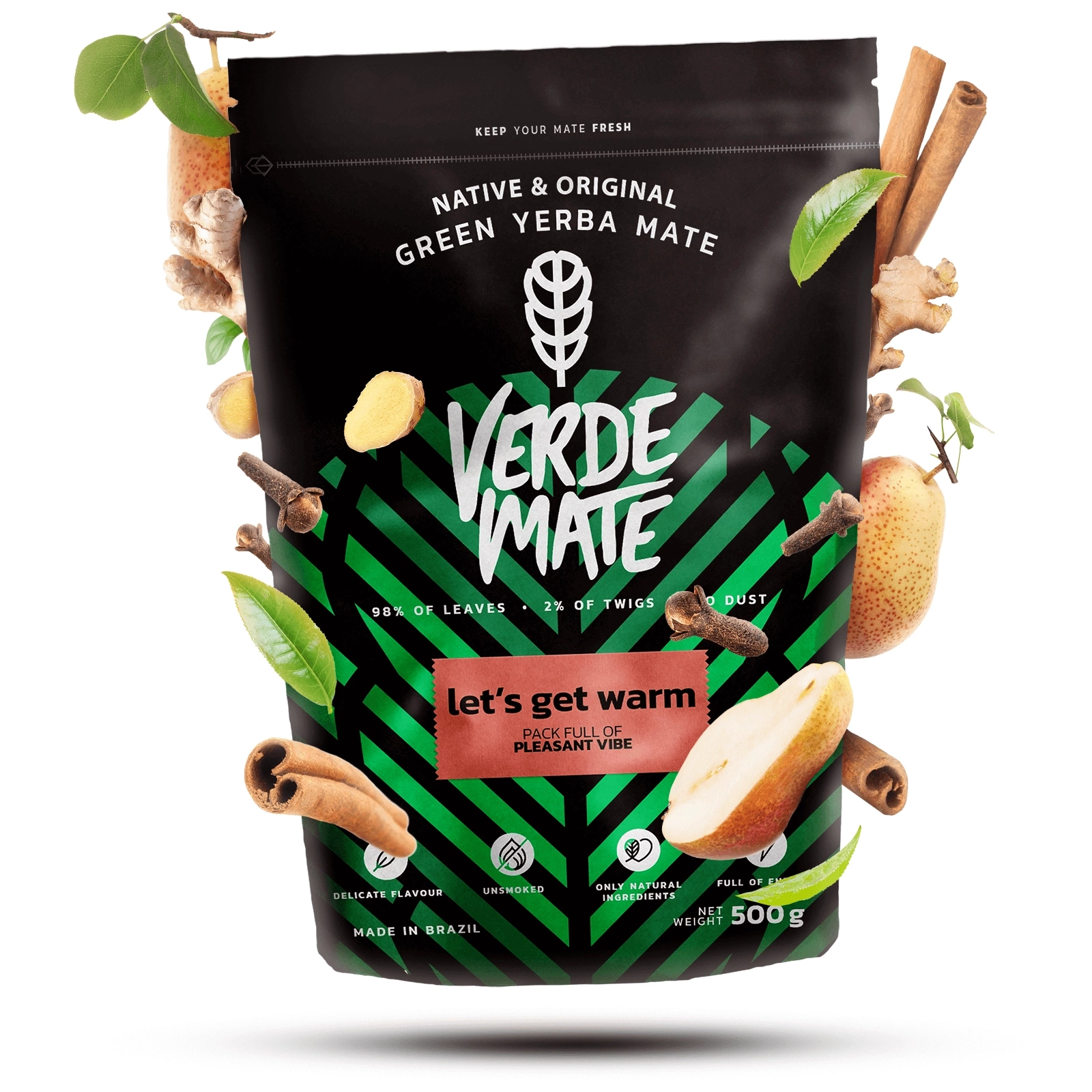
An autumn classic in mate form! Roasted mate with pumpkin, ginger, cinnamon and nutmeg – warming, fragrant and delicious.
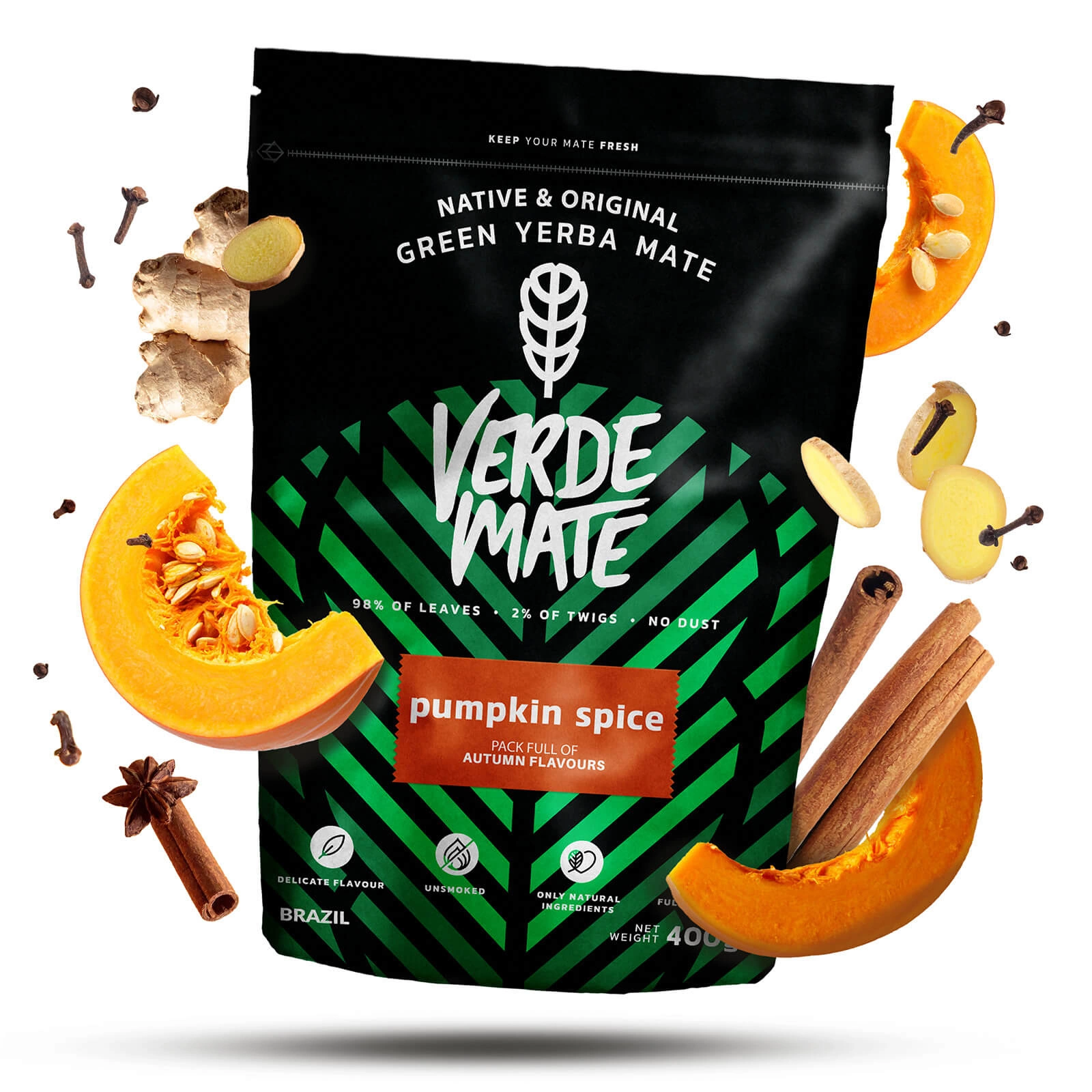
All of these options combine natural mateine stimulation with the warming action of ginger and the comforting aroma of spices – perfect for those who wish to couple flavour pleasure with self‑care.
No matter whether you prefer classic yerba mate or aromatic ginger for tea – both fit perfectly into a daily well‑being ritual. A warm ginger infusion will warm you in winter, while yerba mate will energise you at any time of year.
The combination of ginger and tea or yerba mate is more than just a drink – it’s a natural ritual that brings together flavour, aroma and the energy of nature. Reach for it and enjoy a moment of warming refreshment!
❓ FAQ – most frequently asked questions about ginger and its properties
1. Is ginger healthy?
2. What is ginger good for?
3. Can you drink ginger every day?
4. How to use ginger for colds and the throat?
Sources of information:
- Wikipedia: Ginger.
- N. A. Popławska et al., Ginger (Zingiber officinale) - A Beneficial Effect on Health and Physical Activity, Quality in Sport, 2024.
- N. H. Anh et al., Ginger on Human Health: A Comprehensive Systematic Review of 109 Randomized Controlled Trials, Nutrients, 2020.

